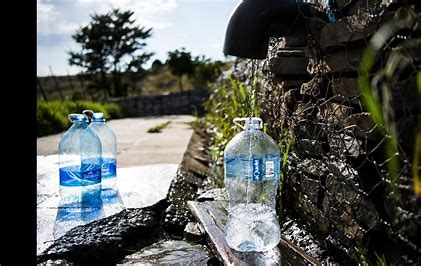Service delivery (or the lack thereof) in South Africa is becoming a real nightmare for most South Africans, especially low-income earners. This has already become clear 10 or 15 years ago with the sharp rise in service delivery protests, especially in the townships and the informal settlements.
When I was doing the rounds on the streets of the small town of Makhanda trying to talk to the residents, I realise this is a nightmare. The feeling I got from the people I spoke to is that they are defeated. One such is a lady who introduced herself as ‘Mama ka Yolisa’ (mother of Yolisa). She said the poor collection of rubbish by the municipality was her nightmare. She said on many occasions when the rubbish has not been collected, community members throw the rubbish at any empty space they find in the location. According to her, this creates a health hazard not only for a few but for all community members and especially children. The rubbish thrown into the open space collects to create a bad smell and diseases which are not good for human beings.
Mthuthuzeli (24), a student at Rhodes University, said the lack of proper drinking water and loadshedding presents a crisis for him. He stays outside the campus where the lack of these essentials makes studying a nightmare. When there is no water to wash in the morning or electricity to study at night he is often forced to go somewhere else which is far from where he lives. This presents a challenge, as he has to negotiate with criminals when he goes back home because it is usually in the middle of the night. He also said the shortage of tap water did not make sense to him because the larger section of the community does not use tap water for fear of health hazards.
I also came across a 35-year-old mother Vuyokazi with a 7-year-old child who has a skin problem. She does use tap water to wash him as it is contaminated and dangerous for her son’s skin. Tap water in Makhanda was deemed unhealthy for drinking by 2021. This is according to the blue drops and green drops water report conducted by Department of Water and Forestry.
Vuyokazi uses water she buys from shops to wash her child. She works at coffee shops earning not much, so she is having it hard. She is also concerned that the rubbish that lies on the pavement of the coffee shops she works for is also a problem. The coffee shop must attract customers but with the rubbish left uncollected by municipal workers, donkeys pull it all over and that creates an unhealthy environment for customers entering the coffee shop. When I asked what has she done for herself and the community to change this, she shrugged her shoulder and said, “It’s a waste of time talking because of uncaring officials and corruption.” She told me that the Gift of the Givers also stop providing water during tough days because they said they were owed money by the municipality.
The question one is left with is, while the people are defeated and have almost given up on authority, is authority giving up on exploiting the people?
This article was submitted on 27 March 2023. You may republish this article, so long as you credit the authors and Karibu! Online (www.Karibu.org.za), and do not change the text. Please include a link back to the original article.


 Download PDF
Download PDF